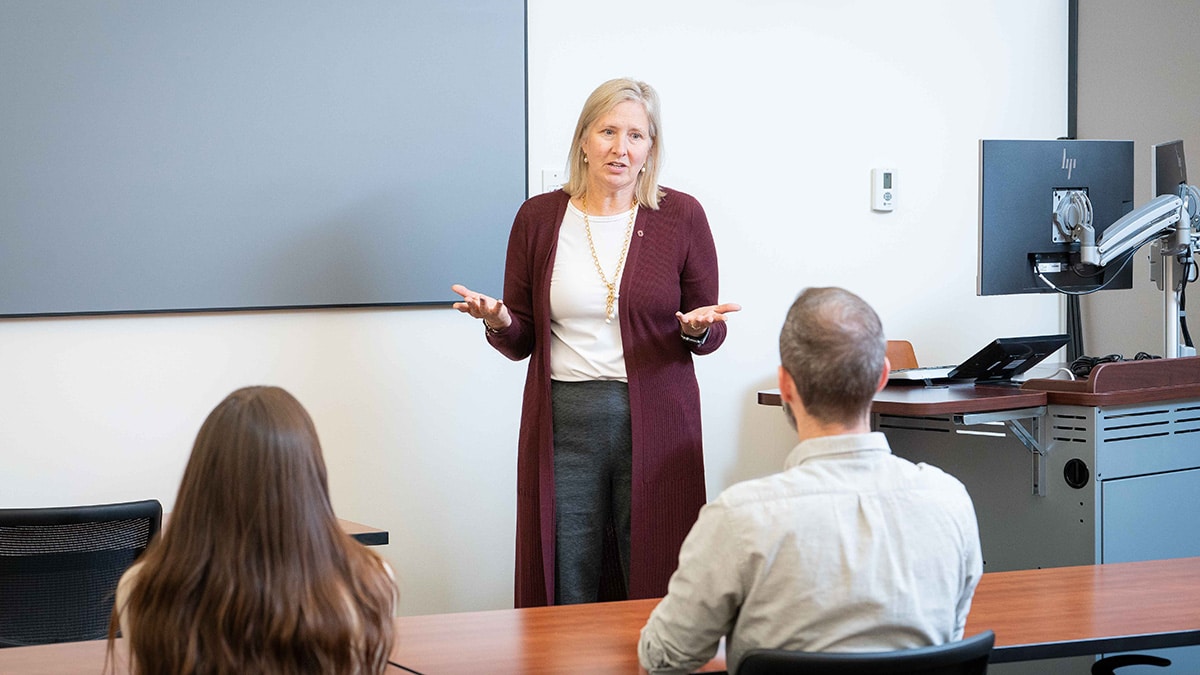End-of-Life Decisions for Individuals with IDD and Dementia
By Sally TomkoOctober 27, 2022
You may be interested in:

Articles
Recognizing the Symptoms of Dementia with IDD
Diagnosing dementia is rarely straightforward, but can be even more challenging for those in the Intellectual and Developmental Disabilities (IDD) community. Many of the most common symptoms of dementia such as language challenges and difficulty with coordination are often things people with IDD already struggle with. This can make it all the more difficult to separate symptoms of dementia from their pre-existing symptoms.

Videos
Caring for Individuals with Intellectual and Developmental Disabilities and Dementia
This webinar will overview common signs and symptoms of Alzheimer’s Disease and related dementias in individuals with intellectual and developmental disabilities, available cognitive assessments, medical and community-based resources, and provide information about a free evidence-based care-coaching program, BRI Care Consultation™, for family and friend caregivers or supporters.

Videos
Making the Most of Mealtime: Eating, Swallowing & Dignified Dining for Individuals with Dementia & IDD
Eating and food are at the center of many of life’s occasions, celebrations and moments together with loved ones. Of course, eating is also a necessity—we rely on nutrition and hydration to survive. But what happens to these important and essential moments when dementia affects a loved one’s eating? In what ways can a loved one’s ability to interact with food begin to change? This webinar explains some of the changes that may make mealtime challenging when caring for someone with dementia, and provides tips on how to set up the eating environment for successful mealtimes. It also focuses on swallowing disorders for individuals with dementia and intellectual and developmental disabilities, and how to balance safety concerns while ensuring a dignified dining experience.

Videos
Maximizing the Environment for Individuals with Dementia
According to the AARP, most Americans would prefer to stay in their homes until the end of their life. This statistic is no different for persons with dementia. Lack of safety and accessibility in the home are issues that need to be addressed so that individuals with dementia and their respective caregivers also have the ability to age in place. Occupational therapy professionals are trained health care providers that can provide formalized home safety assessments and recommend home modifications to increase safety and independence in the home. These efforts are also beneficial for community and business owners to consider and employ to further support individuals with dementia in the community.

Articles
Access to Resources in Ohio for Individuals Living With Dementia and Their Caregivers
Since 2022, Benjamin Rose Institute on Aging has partnered with Ohio State University, the Ohio Department of Aging, and several other aging organizations throughout the state to develop critical resources for individuals living with dementia and their family and friend caregivers. This partnership has led to the creation of Ohio’s first Alzheimer’s Disease and Other Dementias Statewide Resource Program, offering both virtual and in-person access to training, resources, and research on dementia and dementia care.

Articles
Navigating Hospice Care for Loved Ones with Dementia in the End Stages
Dementia is often described as “the long goodbye,” as those with the condition tend to live with it for many years before reaching the advanced stages. This prolonged journey can leave caregivers wondering when they should begin to consider transitioning their loved one to hospice care.

Articles
Communication Aids to Support People with Dementia and IDD
One of the biggest challenges facing caregivers and loved ones of someone with moderate to severe dementia and/or intellectual and developmental disabilities (IDD) is communication. Both conditions can affect a person’s ability to understand what is being said and to respond in a clear, appropriate and easy-to-understand way. Because communication can become so challenging, many caregivers and loved ones make the mistake of getting visibly frustrated, avoiding communication as much as possible and even speaking as if the person with dementia and IDD isn’t in the room and by nature can’t understand anything being said.

Videos
Collaborative Approaches in Elder Justice for Protecting Adults Living with Dementia and IDD
Join us for a thought-provoking webinar featuring esteemed experts in the field on elder justice, specifically highlighting work to protect those with dementia or IDD. Dr. Ronan Factora of the Cleveland Clinic and Natasha Pietrocola of the Cuyahoga County Division of Senior and Adult Services describe an innovative collaboration to provide virtual capacity assessments to Adult Protective Service (APS) clients who need them. Dr. Jess Bibbo from Benjamin Rose Institute on Aging presents emerging evidence about the impact of pets in the lives of people affected by dementia, as well as the benefits and challenges of client pet ownership encountered by APS professionals. Courtney Reynolds from Benjamin Rose shares information about a training program designed to educate mandatory reporters on abuse, neglect and exploitation. Discover collaborative approaches, innovative solutions, and the latest research aimed at ensuring the dignity and safety of older and disabled adults living with dementia and other impairments.







